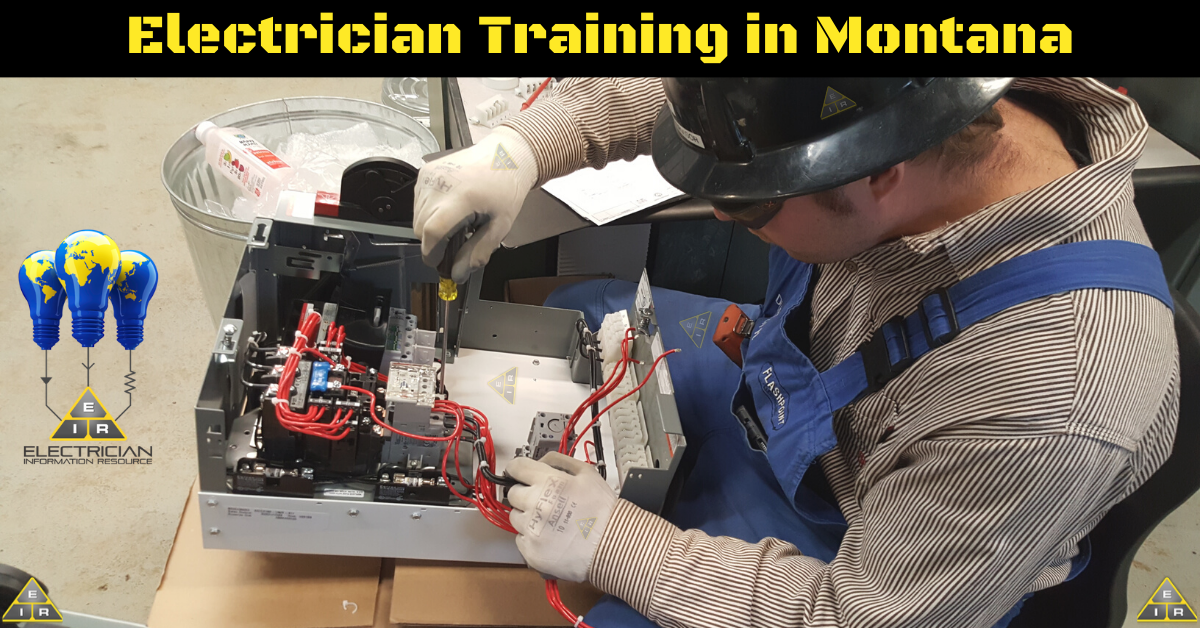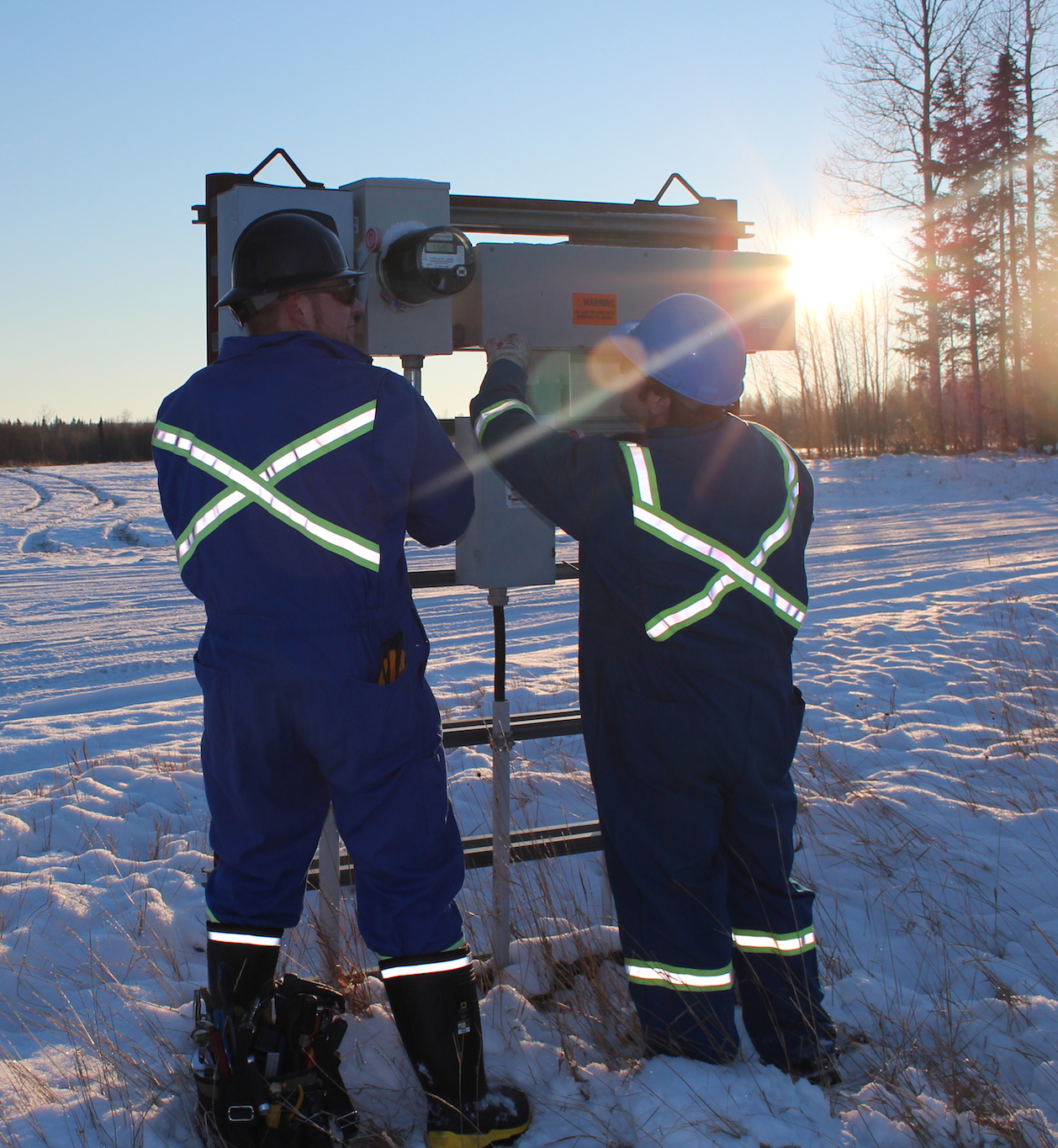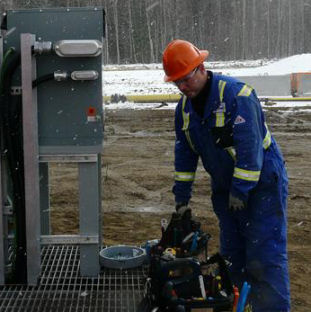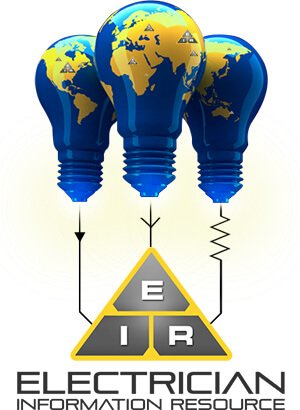Electrician Training in Montana | Start Your Professional Journey

Are you looking for electrician training in Montana? Do you want to live big, go on expensive holiday retreats and retire wealthy? If so, you are in the right place!
Becoming an electrician not only guarantees you of a big house and luxurious vehicles but it also secures your future. This is because the highest-paid electricians earn around $109,600 a year. Others such as power line installers and repairers earn $77,650 - $98,000. According to the US Bureau of Labor statics, electricians in rural Montana are the 2nd highest in the country making them one of the top wealthiest electricians in America.
One reason as to why they are among the wealthiest in America is because of a construction boom that drove up prices. To hammer the point let us compare their average salaries with other professions. The information wage rate below was gathered from the Montana Department of Labor and Industry;
- Carpenters: $40,000
- Maintenance and Repair Workers: $35,000
- Team Assemblers: $23,000
- Motion Picture Projectionist: $22,000
- Carpenters: $39,620
- HVAC: $49,630
We have prepared the menu below to help you easily maneuver through this article on how to become an electrician in Montana.
Quick Start Menu

1. Gaining the Experience Required to Become a Journeyman
2. How to Start Working as a Residential or Journeyman Electrician
3. How to Become a Master Electrician
4. How to Become a Licensed Electrical Contractor
5. Electrician Salaries in Montana

Thinking About Becoming An Electrician In Montana?

All electrician licenses are issued by the Montana Electrical Board. The board has four main functions;
- Enforcing standards
- Disciplining errand members
- Issuing licenses to qualified electricians
- Revoking licenses to those who stop their electrician training
1. Gaining the Experience Required to Become a Journeyman
According to the Montana electrical board, an aspiring journeyman has to either join an apprenticeship program or technical institution to gain the required classroom education hours or job experience hours. The Board will issue a Journeyman License if;
{A} The candidate has a 2- year degree in electrical engineering from a licensed institution or has gained 4,000 hours of job experience
Or
{B} The candidate has participated in a four-year apprenticeship program and has 500 hours of classroom training specifically in National Electrical Code and electrical theory
Or
{C} Depending on the license being applied for, the candidate has an electrical maintenance experience of 20,000 hours.
The three main common ways of gaining electrician experience are;
- Joining a Union Apprenticeship
- Joining a Non-Union apprenticeship
- Joining a Technical Institution
Electrician Training in Montana Through a Union Apprenticeship
Union apprenticeships are facilitated by the Joint Apprenticeship & Training Committees {JATC}. JATC is as a result of collaboration between the International Brotherhood of Electrical Workers {IBEW} and National Electrical Contractors {NECA}.
The main goal of these apprenticeship programs is to offer an apprenticeship program that combines both classroom education field training. In Montana, JATC is based in Helena.
To qualify for a Union Apprenticeship, you must meet the following requirements;
- Have a valid driver’s license
- Be at least 18 years of age
- Be a Montana resident
- Submit copies of your high school diploma
- Pass an aptitude test on electrical trade
- Submit copies of your social security card
- Submit copies of your birth certificate
Electrician Training in Montana Through a Non-Union Apprenticeship
Montana has only one non-union program which is run by the Independent Electrical Contractors association {IEC}. The association partners with non-union shops to find apprenticeship opportunities to students. The association also has several programs operating in:
- Kalispell
- Billings
- Great Falls
- Bozeman
What is the Difference Between a Union and Non-Union Apprenticeship?
In Montana, a Union apprenticeship is run by the International Brotherhood of Electrical Workers {IBEW}, IBEW is a labor union that boasts of more than 750,000 members in countries such as the United States, Canada, Panama, etc. It is a member of the American Federation of Labor-Congress of Industrial Organizations {AFL-CIO}.
This body boasts of immersive bargaining power and this is what makes it powerful. When you join an apprenticeship program under this body, the union will negotiate wages on your behalf based on the market value. To join a union apprenticeship you must become a member of the IBEW. To apply as a member, you must do it through the Joint apprenticeship and Training Committee.
In a non-union apprenticeship program, the shop decides on how much to pay you depending on what other electricians are being paid by other shops. Also, you will have to manually apply for an apprenticeship program. However, an apprentice can approach the IEC which will sponsor their apprenticeship.
Another difference is that a Non-union shop will consider you an investment. This is not a bad thing because, if your labor directly influences the growth of the shop then you get more pay. This is why non-union shops will require you to have some level of technical training. On the other hand, a union shop does not require you to have technical training but it is not easy finding a placement because of the rigorous recruitment process.
Note: If you join a Union program and your output directly influences the growth of the shop you are not rewarded. This is because you are considered a trainee and not an employee.
Electrician Training Through a Technical School
An electrical training school is preferred where an applicant has no electrical background. Expect to be trained in the following topics;
- Electrical theory
- Fiber Optics
- Conduit bending
- Blueprint Reading
- Structured wiring Systems
- OSHA Safety
- Programmable Logic Controllers
- National Electric Code
- Industrial Motor Controls

2. How to Start Working as a Residential or Journeyman Electrician
A residential electrician license allows the holder to work in residential properties. To be eligible for a residential license the holder must meet the following requirements;
- Must have a minimum experience of 4,000 hours in installation, repairing of electrical equipment and wiring
- Must have completed a residential electrician apprenticeship
- Must have completed an apprenticeship program supervised by a registered union
Or
- To have 8,000 hours of electrical experience
- To have electrical maintenance experience of 20,000 hours
If you have met these requirements, send an application to the board. The board can give you a temporary permit by paying a fee of $50. This fee will allow you to work while you wait for your exam.
The exam will consist of at least 50 fairly designed questions meant to test the examiner’s technical knowledge. Other subjects to be tested on are;
- National Electric Code
- Applicable laws under Title 37
- Installation
- Electrical Circuitry
- Ohm's Law
Once you get your residential electrician license, make sure to renew it every 24 months. Before you are allowed to renew it you must have at least 16 hours of continuing education specifically on the National Electric Code.
Note: This license does not allow you to troubleshoot motor controls, or to replace magnetic starters of any kind.
Journeyman Electrician License
According to the board, an applicant must meet the following requirements;
- Complete and submit an application form
- Pay an application fee of $240
- Pay the PSI an examination fee of $70
- Provide a Copy of your Apprenticeship Certificate
- Have a work experience of at least 8,000 hours specializing in repairing electrical apparatus, wiring, heat or power
Or
- Have practical experience of 8,000 hours and electrical maintenance experience of 12,000 hours
To pass the exam a candidate must ensure they get a pass mark of 70% and above. Expect to be evaluated on the following;
- Ohm's law
- Electrical Circuits
- National Electrical Code
If you get the Journey license, keep in mind that it should be renewed every 24 months and before then, you should have 16 hours of continuing education on the National Electrical Code. Expect to earn an average of $31.11 per hour.
There are only two schools in Montana that are approved to offer a two-year associate degree in electrical technology.
3. How to Become a Master Electrician
Once you become a journeyman, your electrical training in Montana should be advanced to take advantage of expert demand in your local area. Instead of earning $31.11 per hour your earnings will rise to $74,834 a year. This is the average wage and if you specialize in high demand sectors of the local economy your earnings could reach $85,000.
To become a master electrician, the following requirements must be met;
- Submit an application with all supporting documents attached
- Pay PSI $80 for the exam
- Pay the state board $240 application fee
- Fulfil the experience requirement
- Fulfil the education requirement
- Submit your college transcripts
To pass the exam, you must get a pass mark of 75%. The exam will be an open book exam and will consist of 80 questions. The exam has a four-hour time limit. Expect to be tested in the following topics;
- Print Reading
- Cost Estimating
- National Electrical Code {2014}
- Layouts of Electrical Circuits
- Procurement and Material Handling
Once you get a master electrician license, make sure to obtain at least 16 hours of continuing education to be allowed to renew it. The renewal fee is $200.
4. How to Become a Licensed Electrical Contractor
The electrical board of Montana offers two types of electrical contractor licenses. These are:
- Unlimited electrical contractor License
- Limited contractor license
The main difference between the two kinds of licenses is the scope of operation. An Unlimited electrical license makes it possible for you to operate in both a commercial setting and a residential setting. On the other hand, a limited electrical license restricts the electrician to only residential structures with less than five units.
Getting a Limited Contractor License

Once you become a limited electrical contractor, you are required by the state board to have a full-time Journeyman electrician to supervise all electrical work. You must also renew the license at least every 24 months at a cost of $300.
The following requirements must be met first;
- Apply with all supporting documents attached
- Show proof of workers compensation coverage
- Pay an application fee of $300
- Submit proof of unemployment insurance coverage
How to Become an Unlimited Electrical Contractor
As an unlimited electrical contractor, your electrician training should enable you to work in both commercial and residential projects. You will also be required to renew your license every 24 months at a cost of approximately $300. To abide by the law, you will have to hire a master electrician who will act as a responsible electrician.
The criteria for becoming an unlimited electrical contractor are;
- Supply all of the supporting documents
- Show proof that you have worker’s compensation coverage
- Fulfill the application fee of $300
- Show proof you have unemployment insurance coverage
5. Electrician Salaries in Montana
The level of electrician training in Montana and the industry you specialize in, will greatly determine your earning potential. Another factor that will determine your salary is the demand for electricians in your local area.
Salaries of Electrical Power-Line Installers and Repairers in Different Localities
- Great Falls MSA: $ $87,580
- East - Balance of State: $73,350 - $74,420
- Central - Balance of State: $74,700 - $75,040
- West - Balance of State: $85,600 - $90,000
- Billings MSA: $83,920 - $85,810
Helper Electrician Salaries
- Montana Statewide: $34,280
General Electrician Salaries
- Billings MSA: $58,140
- Missoula MSA: $54,860
- Central - Balance of State: $61,500
- Southwest - Balance of State: $56,200
- Great Falls MSA: $57,500
- West - Balance of State: $64,700
Security and Fire Alarm Installers
- Billings MSA: $38,000
- Missoula MSA: $41,900
From the analysis above, enrolling for an electrician training program is not only rewarding but also fulfilling. Electricians have higher standards of living and have a comfortable retirement.

Ready To Become An Electrician?





